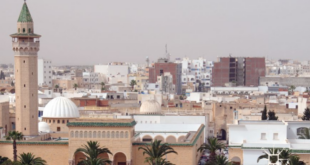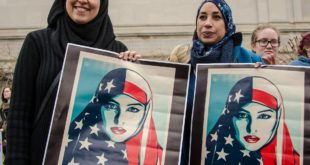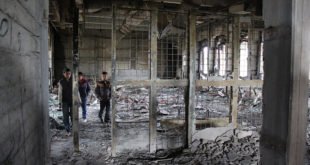
Salah Negm: I would say first that generalizing judgments like this one are not accurate in themselves. . . . The spokesmen must mention specifics. Furthermore we [believe that] these comments can endanger our people in the field. These comments might create a hostile situation for our reporters on the ground-for instance from Coalition forces or Iraqis who support the Coalition and would see us as enemies, which we are not. We are simply journalists. What I prefer is for viewers to judge our coverage and reach their own position based on their viewing of our reporting.
But above all, and this I must emphasize, what we have been doing is accurate reporting to the best of our abilities and from all sides of the story.
SAS: That's interesting because often what is perceived from a distance as bias could be lack of access.
Negm: It's either lack of access or only partial access.
SAS: You mean in the case where you are seeking access from either the Coalition or from the armed groups opposed to the Coalition?
Negm: Here is the problem about lack of access or partial access and how it gets misperceived as bias. Generally in most places where there are insurgencies-not just Iraq, but in Kashmir, for example, you will find that the insurgent fighters are willing to meet with reporters and be outspoken. And then you go to a governmental official or spokesman and he will be cautious and restrained and sometimes you won't even get an immediate answer and you wait for an answer and by the time you get the answer it's too late, the story has moved on.
SAS: Sort of like covering the Arab-Israeli conflict beyond the Palestinians. The Israelis always have 24/7 round-the-clock spokesmen and their homes are listed. The Arab governments never had anything like that; unless you knew the minister personally and could see him or call him up, you couldn't even get an answer from an Arab government spokesman that was quotable. And if you did, it came too late and almost never got used. And because it never got used, Arab media and Arab governments would denounce the Western press as biased, when in fact in cases like this there was no bias at all, simply lack of access. Am I to gather that in the case of Arab satellite television and occupiers, be they American or Indian, the case is in reverse?
Negm: Yes, to a certain extent. So to compensate we broadcast every briefing or statement from Coalition military spokesmen or the IGC (the Iraqi Interim Governing Council) or the CPA (Coalition Provisional Authority) chief Paul Bremer to get their side of the story and everybody, all of our viewers, hear it. What remains to be said is that our reporters on the ground reflect what they see and the information they are able to gather. And this is how and what they can report.
SAS: Let's be specific. I presume that you have plenty of people, insurgents either Sunni or the militia of Muqtada, ready to talk to you.
Negm: In Falluja we had pictures of the fighters but we didn't have fighters talking to us. We did have tribal chiefs, hospital officials, and eyewitnesses among unarmed civilians talking to us as well as representatives of the Islamic Party of Iraq, who have been the mediators in all the attempts to get a ceasefire and a lifting of the siege.
SAS: Why didn't you talk to the fighters?
Negm: Well, they were busy fighting and protecting themselves in the fight. You can get snap shots of fighters in the street, but it's difficult to stop them for a sound bite.
SAS: Let's examine of the area of dispute-the question of how many Falluja civilian casualties. The Coalition was claiming that most casualties were insurgents; opposition to the coalition, like journalists there from anti-war webzines, claimed most were civilians. We get hospital estimates of dead but they don't say, maybe they don't know, how many are fighters and how many are civilians, particularly since the fighters aren't wearing uniforms. They are in civilian dress.
Negm: Well, how can they tell? By the time a dead person gets to the hospital, unless it's a woman or young children, you can't tell, because if he was a fighter his weapon has been taken by his comrades. They are not in uniform, and they don't wear dog tags, like regular army. So for the doctors, a dead man is simply a dead man, and he doesn't know whether he was an unarmed civilian or a fighter.
SAS: But as I mentioned before, the Coalition is claiming that many, if not most of the dead, were fighters.
Negm: In our work we don't enter into this dispute . . .
SAS: [interrupting] But not entering means-in a sense, and with no bad intentions on your part-your coverage could be distorting reality because I am sure given the unhappiness, bitterness, even hysteria that prevail among your viewers when they see images of Falluja-an Arab city under siege by American forces-they are going to assume the dead in the hospital morgues or being quickly buried, are civilians massacred by the Coalition.
Negm: We don't enter into this because there is no way for us to verify. And secondly there is a daily [Coalition] briefing and in their briefing they don't give body counts, no exact numbers of fighters they claim they killed.
SAS: And the insurgency of Muqtada al Sadr and his Mahdi Army?
Negm: We dealt with it the same way: we interviewed al Sadr as well as the Governing Council.
SAS: Since this latest crisis erupted have you moved more people in to Iraq?
Negm: We didn't have to; we already had. Just before Falluja we had a tragedy in our office which effected us in morale and in available journalists-the killing of a senior correspondent and senior cameraman, Ali al Khatib and Ali Abdul Aziz. Our office was not in the best shape when the crisis erupted. But the people we had on the ground in the first days provided fair and adequate coverage. They needed reinforcements so we sent four more news teams-each team consisting of a correspondent, cameraman and assistant. We got them in fast because they were already on standby since we had a plan in place to increase our staffing on the first of May in order to be in as strong position as possible to cover whatever events would happen leading up to the June 30 Transfer of Power. So we accelerated the build up.
SAS: I cannot forget the incredible difficulty in your baptism of fire-the invasion of Iraq little more than a year ago, when I was hanging out here, and in Doha and Abu Dhabi.
Negm: It never really quieted down. Events escalated. And not just in Iraq. The whole region: Palestine, Syria, Sudan. It's been an extraordinary year of major events.
SAS: And the suicide bombings in Saudi Arabia. Why do you think this year is so much worse as far violence and chaos go?
Negm: It's not necessarily worse in the sense of violence. In Sudan the big news is improvement of movement towards [peace] in Sudan, not just in the South but most recently in Darfour. But it's a demanding event as far as coverage, be it violent or peaceful. We have really had to face a demanding situation. TBS
 Arab Media & Society The Arab Media Hub
Arab Media & Society The Arab Media Hub




